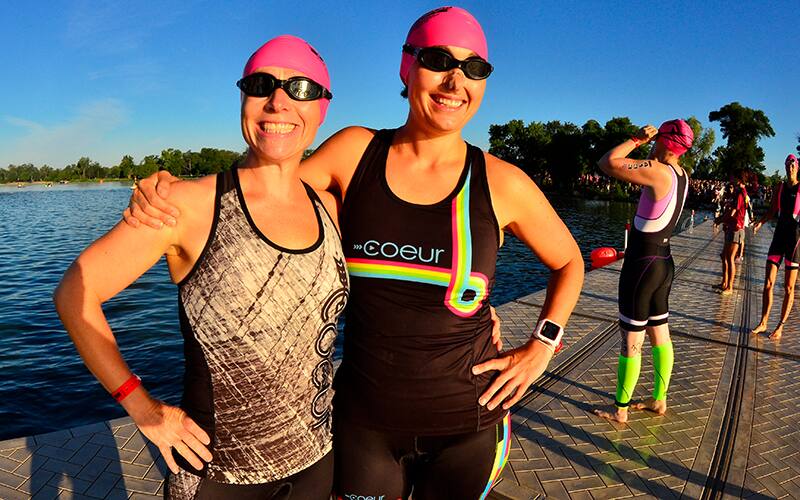How to choose the right race for you
by Reem Jishi | USA Triathlon Certified Coach

This article originally appeared in the Jan./Feb. 2022 issue of USA Triathlon Magazine.
You have done a few local triathlons, and now you are looking for your next race challenge. What questions should you ask yourself before choosing your next triathlon?
We asked the USA Triathlon Certified Coaches at QT2 Systems and OutRival Racing, and here’s what they had to say to help you plan your 2022 race season.
While there is a definite appeal in traveling to a destination race, there are several factors you should consider. For example, what are the logistics in getting there? Will you fly or drive? During this time of COVID, what are the current travel restrictions? How will you get your bike to the race? Will you need to adjust to a different climate or elevation? Can you get the nutrition you need in that location? How much vacation time will you need to take? What is the cost?
- Anne Rollins, Coach OutRival Racing
If you have a swim limiter, then a down current swim will be your best bet to get you in a more favorable position in your age group field. The gains a strong swimmer will have over you will be reduced with a down current swim. If you are a strong swimmer, then look to find non-wetsuit swims or races with an ocean swim. You will be at the advantage.
Ask yourself: Should I expect waves, choppy conditions, currents? Salt water or fresh water? Extremely cold or warm? Mass start, rolling start, or small group start? Also consider what training conditions are available for you. Will you have success to the type of water conditions you will have on race day? If not, how will you prepare?
- Amy Javens, Coach QT2 Systems and Jackie Miller, Coach OutRival Racing
I am often asked the question “How should I go about choosing a race in order to ___?” Fill in the blank with an outcome: win my age group, earn a World Championship slot, earn my pro card, etc. My answer is “You don’t. Just race. Do the races that excite you.”
If you are going to achieve your desired outcome, you will earn it, regardless of where you race. Don’t go chasing the outcome, because the race then becomes about the outcome, not about the race. Choosing a race to get an outcome means your success is measured against things that are outside of your control. Just race the best race you have in you.
- Tim Snow, Coach QT2 Systems
It’s important to take into consideration where you live when choosing a race to both train for and ultimately race. Specificity of preparing for race conditions is important. Allow plenty of time to train for the conditions you are going to encounter on race day. If your local environment is cold and you want to race in a warm location you might need to get creative leading up to the race to include sessions that are indoors on a warm controlled setting or if the opportunity allows, even consider a training vacation in a warm climate leading up to the event.
- Karen Allen-Turner, Coach QT2 Systems
Take into account work deadlines and family commitments when planning your race schedule. And, remember, this includes the months leading into the race. That's when the bulk of your training will happen.
- Dawn English, Coach OutRival Racing
If you want your family or friends at your race, pick one that’s known to be spectator-friendly. You can ask your friends or local triathlon club for ideas, or visit your target race’s website to check how family-friendly it is — you’ll get an idea of where your adoring fans can cheer you on. Some races allow athletes’ family members to cross the finish line with them — definitely a memorable experience for your big race!
- Russet Morrow, Coach OutRival Racing
It can be exciting to set longer distance goals. Before you commit to the training, It’s important to evaluate your life and current commitments to make sure you will have the necessary balance in your life to enjoy the process and find success. For a half-IRONMAN (70.3) distance, athletes typically train 7-10 hours per week. For a full-distance IRONMAN, athletes will average 12-20 hours a week, sometimes more. Set a goal that is challenging and strikes the work-life-train balance you manage. Triathlon is a commitment that comes with many sacrifices that will reap countless rewards along the way!
- Courtney Kutler, Coach OutRival Racing